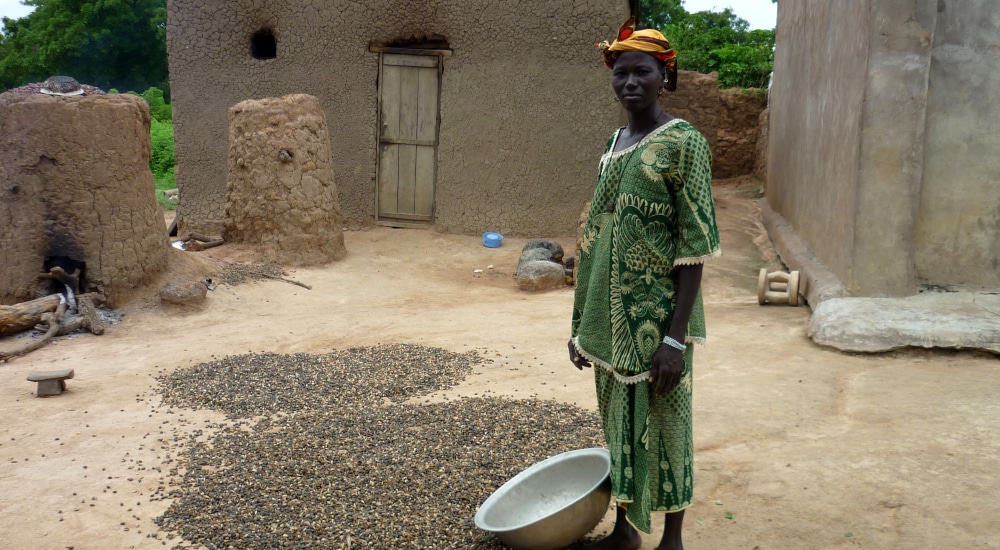Local biofuels, rural territories and energy
The ALTERRE project, run in Mali until 2015, helped to develop short biofuel supply chains and local energy services in south-east Mali.
CONTEXT AND CHALLENGES
In Africa, where energy is becoming increasingly expensive and often acts as a brake on rural development, short biofuel supply chains are seen as an opportunity to develop provision of local energy services and improve people’s living conditions.
The ALTERRE project, run in Mali until 2015, promoted the sustainable development of short biofuel supply chains and local energy services in the south-east of the country. It aimed to establish a production and processing facility for Jatropha seed, enabling local economic operators to replace diesel completely or partially with Jatropha Pure Vegetable Oil (PVO) in their production processes.
The project began work in 2008 in three distinct territories: Yorosso municipality, Koury municipality and 13 villages spread across Konseguela and Diedougou municipalities. A short Jatropha-based biofuel supply chain was set up in each territory.

An integrated support approach
Driving the establishment of a new field such as Jatropha production means paying special attention to the performance of each link in the value chain and the chain as a whole.
The project focused its support on five key areas:
- Key area 1: Production of Jatropha seeds, scaled to meet the needs of the target territory. The project helped volunteer farmers to grow this new crop.
- Key area 2: Extraction of Jatropha oil. The project supported the installation of local entrepreneurs and strengthening of their technical and managerial capacity.
- Key area 3: Use of the oil in motors. The project finalized the technical requirements for use and undertook capacity-building for operators to ensure that the oil was used under appropriate conditions.
- Key area 4: Organizing the sector. To ensure long-term sustainability, the project helped the various stakeholder groups to agree and organize their operating model.
- Key area 5: Monitoring, evaluation and capitalization. The project has been carefully monitored and played a part in establishing technical and economic benchmarks for short Jatropha-based farmer biofuel supply chains.
Partners
Financial partners
- Union européenne (Facilité Energie II)
- FFEM (Fonds Français pour l’Environnement Mondial)
- ADEME (Agence de l’environnement et de la maîtrise
- European Union (Energy II Facility)
- FFEM (Fonds Français pour l’Environnement Mondial) French Global Environment Facility
- ADEME (Agence de l’environnement et de la maîtrise de l’énergie) Environment and Energy Management Agency
- Agentschaap NL – Daey Ouwens Fund
- TATE
- Prince Albert II de Monaco Foundation
- Veolia Environment Foundation
Technical partners
- IRAM (Institut de Recherches et d’Applications desIRAM (Institut de Recherches et d’Applications des Méthodes de développement) Institute for research and application of development methods
- AMEDD (Association Malienne pour l’Eveil au Développement Durable) Malian sustainable development association
- ANADEB (Agence Nationale de Développement des Biocarburants) National biofuel development agency
WATCH THE PROJECT VIDEO
Jatropha means energy
WOULD YOU LIKE TO TAKE ACTION
AND SUPPORT WHAT WE DO?
Tell us who you are and find your means of action.
